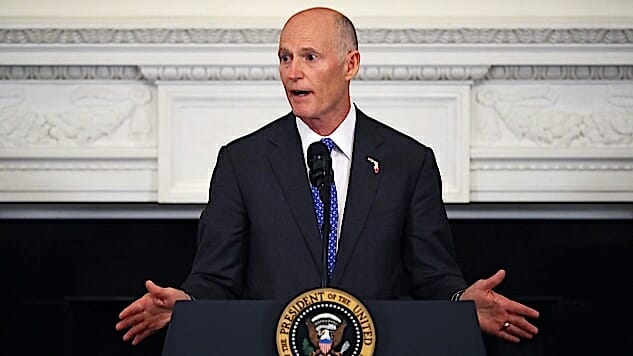A Rare Piece of Good News For Republicans: Rick Scott Will Run for U.S. Senate in Florida
Photo by Chip Somodevilla/Getty
Dark cloud has followed dark cloud for Republicans concerned with the 2018 midterms, and the trend-line can only be called “troubling.” Due to retirements, Trump’s unpopularity, and swings in the electorate, the party’s majorities in both houses of Congress are in jeopardy, and Donald Trump is at risk of being isolated in the White House with his defunct “America First” agenda.
Within that broader context, however, the GOP got some good news on Monday, when Florida governor Rick Scott announced that he would be running against the incumbent Democrat Bill Nelson in the upcoming U.S. Senate race. From the Times:
-

-

-

-

-

-

-

-

-

-

-

-

-

-

-

-

-

-

-

-

-

-

-

-

-

-

-

-

-

-

-

-

-

-

-

-

-

-

-

-








































